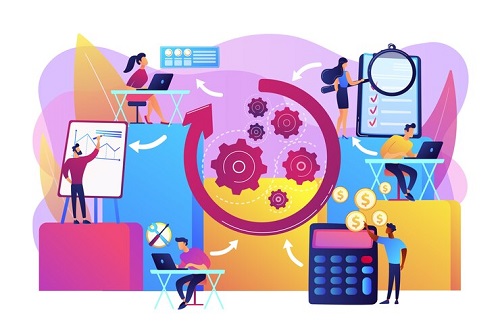The Evolution of Decision-Making in Business
Historical Context: Traditional Decision-Making Processes
For centuries, business decisions were primarily driven by human intuition, experience, and limited data analysis. Executives and managers relied on their gut feelings, historical data, and sometimes, sheer luck. This traditional approach, while effective in a simpler business environment, often led to inconsistent outcomes and missed opportunities.
Introduction to AI and Its Growing Role in Business
Artificial Intelligence (AI) has emerged as a revolutionary force, transforming how businesses operate and make decisions. From predictive analytics to real-time data processing, AI leverages vast amounts of data to provide insights that were previously unimaginable. This shift towards AI-driven decision-making is not just a trend but a fundamental change in the business landscape.
Key Differences Between Human and AI-Driven Decisions
While human decision-making is influenced by emotions, biases, and limited data, AI-driven decisions are based on comprehensive data analysis, algorithms, and machine learning models. Here’s a quick comparison:
| Aspect | Human Decision-Making | AI-Driven Decision-Making |
|———————|—————————————–|——————————————-|
| Data Processing | Limited and time-consuming | Vast and real-time |
| Bias and Emotions | Prone to biases and emotional influence | Objective and data-driven |
| Consistency | Variable outcomes | Consistent and repeatable |
| Speed | Relatively slow | Extremely fast |
The Mechanics of AI in Decision-Making
Overview of AI Technologies
AI encompasses a variety of technologies, including:
- Machine Learning (ML): Algorithms that improve through experience.
- Neural Networks: Systems modeled after the human brain to recognize patterns.
- Natural Language Processing (NLP): Enables machines to understand and respond to human language.
- Robotic Process Automation (RPA): Automates repetitive tasks.
How AI Processes Data to Make Informed Decisions
AI systems analyze vast datasets to identify patterns, correlations, and trends. This involves:
- Data Collection: Gathering data from various sources.
- Data Cleaning: Ensuring data quality and consistency.
- Model Training: Using algorithms to learn from data.
- Prediction: Applying trained models to new data for decision-making.
Real-Time Data Analysis and Predictive Analytics
AI excels in real-time data analysis, providing businesses with up-to-the-minute insights. Predictive analytics uses historical data to forecast future trends, enabling proactive decision-making.
Benefits of AI-Driven Decision-Making
Enhanced Accuracy and Reduced Human Error
AI minimizes human errors by relying on precise algorithms and comprehensive data analysis. This leads to more accurate and reliable decisions.
Speed and Efficiency: Making Decisions at the Speed of Data
AI processes data at lightning speed, allowing businesses to make swift decisions. This agility is crucial in today’s fast-paced market.
Scalability: Handling Large Volumes of Data Effortlessly
AI systems can handle and analyze vast amounts of data, scaling effortlessly as the business grows. This capability is particularly beneficial for large enterprises dealing with big data.
Real-World Applications
Case Studies of Businesses Successfully Using AI
- Amazon: Uses AI for personalized recommendations, inventory management, and logistics optimization.
- Netflix: Employs AI to predict viewer preferences and optimize content delivery.
- Tesla: Integrates AI in its autonomous driving technology and manufacturing processes.
Industry-Specific Examples
- Finance: AI-driven fraud detection and risk management.
- Healthcare: AI for diagnostic imaging and personalized treatment plans.
- Retail: AI in supply chain optimization and customer service chatbots.
Lessons Learned and Best Practices
Successful AI integration requires a clear strategy, quality data, and continuous learning. Businesses should start small, iterate, and scale based on successes.
Overcoming Challenges
Addressing Concerns: Bias in AI, Transparency, and Ethics
AI systems can inherit biases from training data. It’s crucial to implement fairness and transparency measures, ensuring ethical AI usage.
Integration with Existing Systems and Processes
Seamless integration with current systems is vital. Businesses should adopt a phased approach, ensuring minimal disruption.
Training and Upskilling Employees for an AI-Driven Environment
Investing in employee training and upskilling is essential. This prepares the workforce for new roles and responsibilities in an AI-driven landscape.
The Future of AI in Business Decisions
Emerging Trends and Technologies
- Explainable AI (XAI): Enhances transparency by making AI decisions understandable.
- Edge AI: Processes data locally on devices, reducing latency.
- AI and IoT Integration: Combines AI with the Internet of Things for smarter operations.
Long-Term Impact on Business Strategy and Operations
AI will continue to reshape business strategies, driving innovation and efficiency. Companies that embrace AI will gain a competitive edge.
Preparing for an AI-Driven Future: What Businesses Need to Do Now
- Adopt a Data-First Approach: Prioritize data collection and management.
- Invest in AI Technologies: Allocate resources for AI tools and platforms.
- Foster a Culture of Innovation: Encourage experimentation and continuous learning.
Call to Action: Embracing AI for Better Decisions
Steps to Start Integrating AI into Decision-Making Processes
- Assess Needs: Identify areas where AI can add value.
- Pilot Projects: Start with small, manageable AI projects.
- Measure Impact: Evaluate the success and scalability of AI initiatives.
Resources and Tools for Businesses New to AI
- AI Platforms: Google AI, IBM Watson, Microsoft Azure AI.
- Learning Resources: Coursera, Udacity, edX for AI courses.
- Consulting Services: Partner with AI experts for tailored solutions.
Encouragement to Innovate and Stay Competitive
The AI revolution is here. Businesses that embrace AI will not only make better decisions but also drive innovation and stay ahead in the competitive landscape. Now is the time to act, innovate, and transform your decision-making processes with AI.



